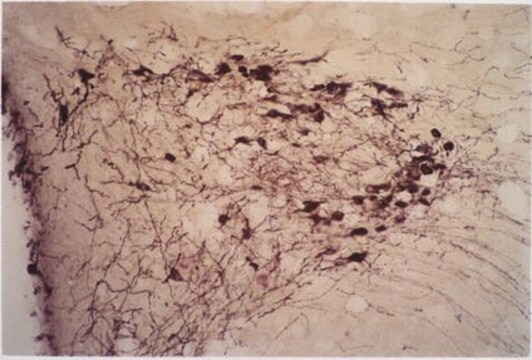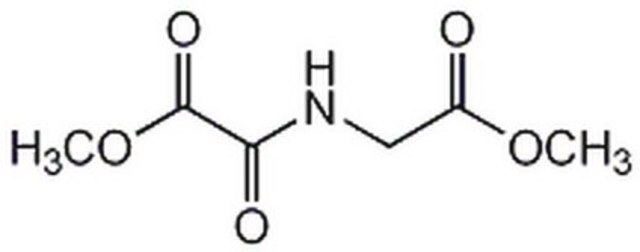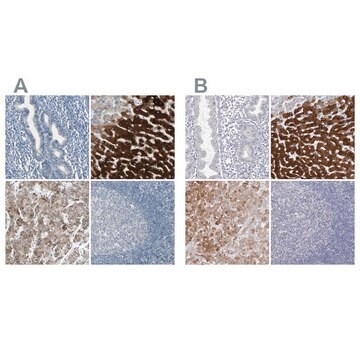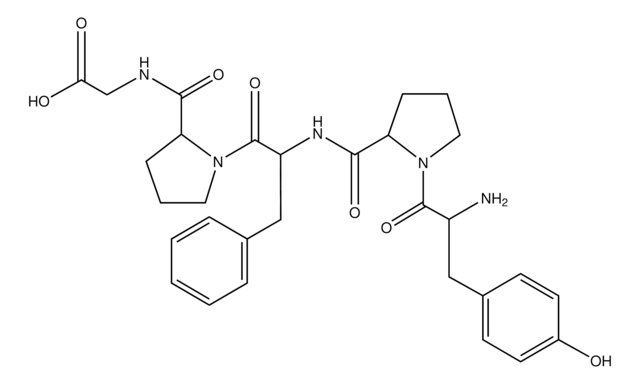MABE227
Anti-FTO Antibody, clone 5-2H10
clone 5-2H10, from mouse
Synonym(e):
Alpha-ketoglutarate-dependent dioxygenase FTO, Fat mass and obesity-associated protein
About This Item
WB
western blot: suitable
Empfohlene Produkte
Biologische Quelle
mouse
Qualitätsniveau
Antikörperform
purified immunoglobulin
Antikörper-Produkttyp
primary antibodies
Klon
5-2H10, monoclonal
Speziesreaktivität
human, rat
Methode(n)
immunohistochemistry: suitable (paraffin)
western blot: suitable
Isotyp
IgG2aκ
NCBI-Hinterlegungsnummer
UniProt-Hinterlegungsnummer
Versandbedingung
wet ice
Posttranslationale Modifikation Target
unmodified
Angaben zum Gen
human ... FTO(79068)
Allgemeine Beschreibung
Immunogen
Anwendung
Epigenetik & nukleäre Funktionen
Zellzyklus, DNA-Replikation & -Reparatur
Qualität
Western Blot Analysis: 1 µg/mL of this antibody detected FTO in 10 µg of human kidney tissue lysate.
Zielbeschreibung
Physikalische Form
Lagerung und Haltbarkeit
Hinweis zur Analyse
Human kidney tissue lysate
Sonstige Hinweise
Haftungsausschluss
Sie haben nicht das passende Produkt gefunden?
Probieren Sie unser Produkt-Auswahlhilfe. aus.
Empfehlung
Lagerklassenschlüssel
12 - Non Combustible Liquids
WGK
WGK 1
Flammpunkt (°F)
Not applicable
Flammpunkt (°C)
Not applicable
Analysenzertifikate (COA)
Suchen Sie nach Analysenzertifikate (COA), indem Sie die Lot-/Chargennummer des Produkts eingeben. Lot- und Chargennummern sind auf dem Produktetikett hinter den Wörtern ‘Lot’ oder ‘Batch’ (Lot oder Charge) zu finden.
Besitzen Sie dieses Produkt bereits?
In der Dokumentenbibliothek finden Sie die Dokumentation zu den Produkten, die Sie kürzlich erworben haben.
Unser Team von Wissenschaftlern verfügt über Erfahrung in allen Forschungsbereichen einschließlich Life Science, Materialwissenschaften, chemischer Synthese, Chromatographie, Analytik und vielen mehr..
Setzen Sie sich mit dem technischen Dienst in Verbindung.







